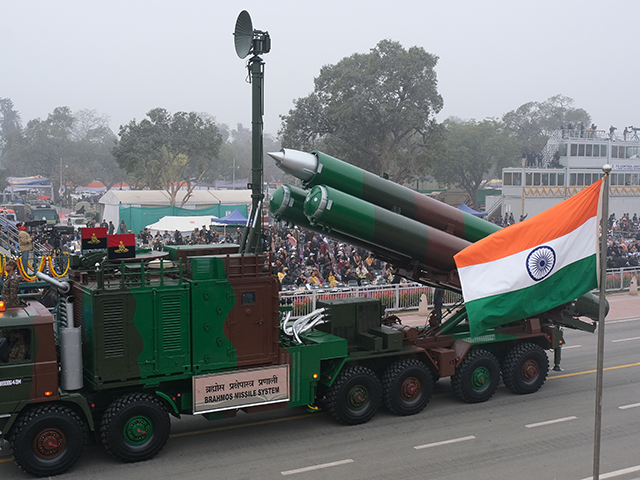The Philippine government hinted on Tuesday that it would welcome a permanent defense attaché from India, a sign of growing military cooperation between the two countries against the common menace of Communist China.
According to a report at by the Philippine Star, Philippine Assistant Defense Secretary Pablo Lorenzo discussed the possibility of Indian permanent stationing a defense envoy in Manila while attending the fourth Philippines-India Joint Defense Cooperation Committee (JDCC) last Friday.
As defense cooperation between the two countries ramps up, the Philippines and India welcome the possibility of the deployment of an Indian defense attaché who will be based in Manila.https://t.co/FiCF1ODJWo
— Philstar.com (@PhilstarNews) April 4, 2023
“While there, the countries agreed to enhance collaboration when it comes to maritime security and proposed to look into working together for cyber security, military medicine, joint training, humanitarian assistance and disaster response, as well as space security projects,” Philstar reported.
The two nations also discussed the current status of various military “procurements and acquisitions,” most notably a $375 million contract to purchase anti-ship missiles the Philippines signed in January 2022.
In February 2023, 21 Philippine Navy personnel were awarded interim badges for completing their training on the BrahMos Shore Based Anti-Ship Missile System (SBASMS) by India’s Chief of Naval Staff, Adm. Radhakrishnan Hari Kumar.
The Philippine Marine Corps is scheduled to receive three batteries of BrahMos missiles from India later this year, making the Philippines the first country besides India to use the system. The batteries will be positioned on islands that put the Indian-made missiles almost in range to hit several South China Sea features claimed by both China and the Philippines.
The BrahMos is a medium-range solid-fueled supersonic cruise missile with stealth capabilities, able to carry a 300-kilogram warhead almost 300 kilometers at Mach 3. Variations of the BrahMos can be launched from surface vessels and submarines, in addition to the land-based batteries purchased by the Philippines.
India is planning to sell BrahMos missiles across Southeast Asia to counter Chinese aggression. BrahMos Aerospace is currently in “advanced discussions” with Indonesia for a $200 million missile deal and is marketing the weapon to other regional powers like Vietnam as a way to establish deterrence against China without becoming more dependent upon the United States or Russia.
India courts Southeast Asia with affordable missiles amid South China Sea rows, Russia-Ukraine war https://t.co/j8JGYjUwz8
— South China Morning Post (@SCMPNews) April 4, 2023
India itself still buys a great deal of military hardware from Russia. On Wednesday, a think tank called the Indian Defense Research Wing (IDRW) reported that India is interested in buying Russia’s deadly Zircon hypersonic missile – currently the fastest missile in the world, if Russia’s claims are to be believed – and incorporating its technology into a hypersonic variant of the BrahMos system.
According to the Star, India hopes to loop the Philippines into its “Act East Policy,” an initiative to create an Indian-led (and perhaps more importantly, Indian-supplied) regional security cooperative that can counter China.
The Economic Times of India on Thursday described the BrahMos missile deal with the Philippines as a “transformational moment in India-Philippines ties,” and a major step toward “far deeper military-to-military engagements” between the two countries, as Indian ambassador Shambhu Kumaran put it.
Kumaran advised the Philippines to increase both military and economic ties to India under the Act East Policy as a means of preserving its independence as it approaches a trillion-dollar economy by the end of the decade. He noted that on the subject of cybersecurity, nearly every major Indian IT company already has a branch in the Philippines, accounting for up to 250,000 tech sector jobs.
The BrahMos deal is so important to India that when a BrahMos launcher in India malfunctioned in March 2022 and accidentally fired a missile into Pakistani airspace, Ambassador Kumaran rushed into a meeting with Philippine Defense Secretary Delfin Lorenzana to brief him on the incident and assure him there were no “technical issues” with the missile system. The accidental launch was eventually ruled human error, costing the jobs of three Indian Air Force officers who were involved.


COMMENTS
Please let us know if you're having issues with commenting.